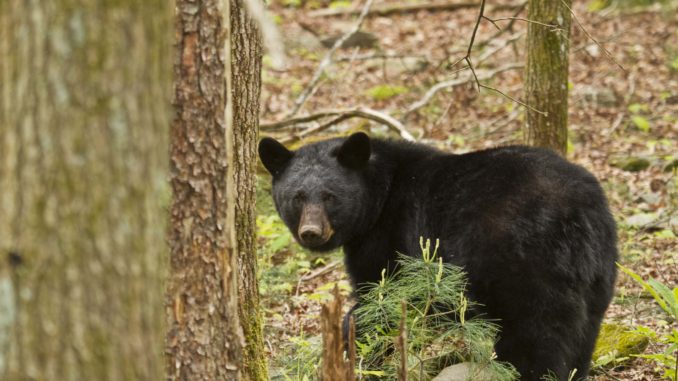
Agency hopes to put end to practice of
Six of the seven black bears held in captivity by permit in South Carolina have been turned over to the S.C. Department of Natural Resources and relocated to a 720-acre wildlife sanctuary in Colorado. One of the seven bears was deemed too old to be transported, and the owner was allowed to keep it.
Capt. Robert McCullough of SCDNR’s law enforcement division, said the agency has no plans to issue any new permits to keep captive bears, thus bringing an end to the practice of “bear-baying” – a method of training bear dogs by allowing them to harass a tethered bear. Considered cruel and abusive by many, biologists and others have sought to end the practice for many years.
McCullough said three of the captive bears were given up voluntarily by James Robert Grumbles, 65, of Travelers Rest, who was originally charged with a felony count of animal cruelty but pleaded guilty to a misdemeanor charge of mistreating animals in exchange for giving up the bears. Officers said Grumbles allowed the bears that he had kept caged in a remote area north of Greenville to be used to train bear dogs, allowing them to repeatedly attack and bite the bears.
Grumbles was arrested in the second of two sweeps in the Upstate in October after a 4-year undercover operation conducted by SCDNR officers. A total of 13 men from the Greenville, Oconee and Pickens area have been charged with numerous violations of game laws involving bear hunting.
The other three bears moved to the wildlife preserve in Colorado came from a permit holder in Spartanburg County who has not been charged with any wildlife violations.
“He volunteered to give his bears up. He had four bears and he kept one old bear that was more like a family lap dog. It was so old it probably would not have made the trip to Colorado,” said McCullough who did not name the owner.
“The thing we are happy about is that with the three bears from this individual and the three from Grumbles, there are no bears left that are permitted, so that does away with bear-baying,” said McCullough.
A release from SCDNR said the agency does not consider bear baying/baiting a legitimate field trial and has never issued and will not issue permits for this activity. SCDNR also does not consider the possession of black bears by individuals to be biologically sound, safe for the local community, or in the best long-term interest of the wild black bear resource.
The captive bears, which ranged in age from seven to 23 years, were picked up Oct. 7 by SCDNR wildlife and law enforcement personnel who transported them in a 25-hour drive to Wild Animal Sanctuary in Keeneseburg, Colo., (www.wildanimalsanctuary.org), a facility that harbors many types of wildlife, including those seized by state and federal wildlife authorities. The non-profit, home to more than 300 large carnivores and omnivores, is licensed by the State of Colorado, the U.S. Department of Agriculture and the U.S. Fish and Wildlife Service as a zoological facility.
“These bears will be as close to living in the wild as possible,” said Pat Craig, director of the sanctuary. “We have them in small enclosures now, but they will be released into a 10-acre habitat that is very much a natural environment, where bears could even hibernate during the winter.”



Be the first to comment